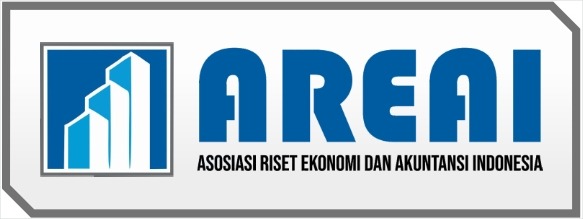Re-examining the Influence of Tax Compliance Costs on Entrepreneurial Intentions within Nigeria’s Business Landscape
DOI:
https://doi.org/10.61194/ijat.v3i2.753Keywords:
Tax Compliance Costs, Entrepreneurial Intentions, Government Support, Business Climate, NigeriaAbstract
This research explores how tax compliance costs affect entrepreneurial intentions in Nigeria’s business sector. It specifically evaluates the impact of monetary, time, and psychological compliance costs on individuals' propensity to engage in entrepreneurial endeavors. The moderating role of perceived government support is also assessed. Utilising a quantitative survey design, data were collected from 420 participants, with 392 valid responses analysed through descriptive, correlation, and regression methods. Findings reveal that all dimensions of tax compliance costs exert a significant negative influence on entrepreneurial intentions, while perceived government support mitigates these adverse effects. The study recommends simplifying tax procedures, minimising compliance expenses, and enhancing tax education to promote entrepreneurial activities. Implications for tax policy formulation and entrepreneurship development are also discussed.
References
Acs, Z. J., Desai, S., & Hessels, J. (2008). Entrepreneurship, economic development and institutions. Small Bus Econ, 31(3), 219–234. DOI: https://doi.org/10.1007/s11187-008-9135-9
Adebisi, J. F., & Gbegi, D. O. (2013). Effect of multiple taxation on the performance of small and medium scale business enterprises. Res J Finance Account, 4(6), 125–131. DOI: https://doi.org/10.5901/mjss.2013.v4n6p323
Ajzen, I. (1991). The theory of planned behavior. Organ Behav Hum Decis Process, 50(2), 179–211. DOI: https://doi.org/10.1016/0749-5978(91)90020-T
Ariyo, A., & Bekoe, W. (2021). Taxation and entrepreneurship in Africa: A regional analysis. Afr J Econ Policy, 28(1), 45–66.
Bank, W. (2020). Doing Business 2020: Comparing business regulation in 190 economies.
Braunerhjelm, P., & Eklund, J. E. (2014). Taxes, tax administrative burdens and new firm formation. Kyklos, 67(1), 1–11. DOI: https://doi.org/10.1111/kykl.12040
Coolidge, J. (2012). Findings of tax compliance cost surveys in developing countries. EJournal Tax Res, 10(2), 250–287.
Djankov, S., Ganser, T., McLiesh, C., Ramalho, R., & Shleifer, A. (2010). The effect of corporate taxes on investment and entrepreneurship. Am Econ J Macroecon, 2(3), 31–64. DOI: https://doi.org/10.1257/mac.2.3.31
Evans, C. (2003). Studying the studies: An overview of recent research into taxation operating costs. EJournal Tax Res, 1(1), 64–92.
Evans, C. (2008). Tax compliance costs: A review of the literature and implications for tax administration. Bull Int Tax, 62(9), 447–456.
Krueger, N. F., Reilly, M. D., & Carsrud, A. L. (2000). Competing models of entrepreneurial intentions. J Bus Ventur, 15(5–6), 411–432. DOI: https://doi.org/10.1016/S0883-9026(98)00033-0
Liñán, F., & Chen, Y. W. (2009). Development and cross–cultural application of a specific instrument to measure entrepreneurial intentions. Entrep Theory Pract, 33(3), 593–617. DOI: https://doi.org/10.1111/j.1540-6520.2009.00318.x
North, D. C. (1990). Institutions, institutional change and economic performance. DOI: https://doi.org/10.1017/CBO9780511808678
O.E.C.D. (2004). Compliance risk management: Managing and improving tax compliance.
Okafor, C. A., Uchenna, M. A., & Nwankwo, O. (2020). Tax compliance costs and firm performance in sub-Saharan Africa: Evidence from Nigeria. Afr J Account Audit Finance, 8(2), 129–145.
Onwuchekwa, J. C., & Aruwa, S. A. S. (2014). Value added tax and economic growth in Nigeria. Eur J Account Audit Finance Res, 2(8), 62–69.
Oyedele, T. (2016). Taxation and SMEs in Nigeria: The way forward.
Oyelaran-Oyeyinka, B. (2020). Industrialization as an engine of inclusive growth in developing countries: Lessons from Nigeria. Innov Dev, 10(2), 105–123.
Sandford, C. (1995). Tax compliance costs: Measurement and policy.
Uchenna, O. K., & Chinedum, A. I. (2019). Institutional quality and entrepreneurial intentions in Nigeria. Int J Dev Sustain, 8(10), 617–632.
Waweru, M. G. (2019). Tax compliance costs and growth of small and micro-enterprises in Kenya. J Afr Tax Adm, 4(1), 57–72.
Williams, C. C., & Shahid, M. S. (2016). Informal entrepreneurship and institutional theory: Explaining the varying degrees of informality across emerging economies. Entrep Reg Dev, 28(3–4), 292–309.
Downloads
Published
How to Cite
Issue
Section
License
Copyright (c) 2025 Mohammed Aminu Bello

This work is licensed under a Creative Commons Attribution 4.0 International License.






